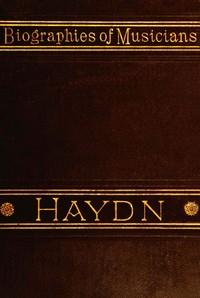|
|
Read this ebook for free! No credit card needed, absolutely nothing to pay.Words: 120615 in 19 pages
This is an ebook sharing website. You can read the uploaded ebooks for free here. No credit cards needed, nothing to pay. If you want to own a digital copy of the ebook, or want to read offline with your favorite ebook-reader, then you can choose to buy and download the ebook. PAGE THE SINS OF SOCIETY, 1 CONSCRIPTION, 34 GARDENS, 45 O BEATI INSIPIENTES! 55 CITIES OF ITALY, 87 THE FAILURE OF CHRISTIANITY, 111 THE PASSING OF PHILOMEL, 131 THE ITALY OF TO-DAY, 145 THE BLIND GUIDES OF ITALY, 160 L'UOMO FATALE, 188 THE NEW WOMAN, 205 DEATH AND PITY, 223 SHELLEY, 254 SOME FALLACIES OF SCIENCE, 281 FEMALE SUFFRAGE, 302 VULGARITY, 327 THE STATE AS AN IMMORAL FACTOR, 347 THE PENALTIES OF A WELL-KNOWN NAME, 368 THE LEGISLATION OF FEAR, 382 THE SINS OF SOCIETY 'Ses divertissements sont infiniment moins raisonnables que ses ennuis.'--PASCAL. A brilliant and daring thinker lately published some admirable papers called 'Under the Yoke of the Butterflies.' The only thing which I would have changed in those delightful satires would have been the title. There are no butterflies in this fast, furious and fussy age. They all died with the eighteenth century, or if a few still lingered on into this, they perished forever with the dandies. The butterfly is a creature of the most perfect taste, arrayed in the most harmonious colours: the butterfly is always graceful, leisurely, aerial, unerring in its selection of fragrance and freshness, lovely as the summer day through which it floats. The dominant classes of the present day have nothing in the least degree akin to the butterflies; would to Heaven that they had! Their pleasures would be more elegant, their example more artistic, their idleness more picturesque than these are now. They would rest peacefully on their roses instead of nailing them to a ballroom wall; they would hover happily above their lilies and carnations without throwing them about in dust and dirt at carnivals. Butterflies never congregate in swarms; it is only locusts which do that. Butterflies linger with languorous movement, always softly rhythmical and undulating even when most rapid, through the sunny air above the blossoming boughs. The locust is jammed together in a serried host, and tears breathlessly forward without knowing in the least why or where he goes, except that he must move on and must devour. There is considerable analogy between the locust and society; none between society and the butterfly. But be the yoke called what it will, it lies heavily on the world, and there is no strength in the strongest sufficient to lift it up and cast it off, for its iron is Custom and its ropes are Foolishness and Bad Example, and what is termed Civilisation carries it as the steer carries the nose-ring and the neck-beam. Some clever people have of late been writing a great deal about society, taking English society as their especial theme. But there are certain facts and features in all modern society which they do not touch: perhaps they are too polite, or too politic. In the first place they seem to except, even whilst attacking them, smart people as elegant people, and to confuse the two together: the two words are synonymous in their minds, but are far from being so in reality. Many leaders of the smart sets are wholly unrefined in taste, loud in manner, and followed merely because they please certain personages, spend or seem to spend profusely, and are seen at all the conspicuous gatherings of the season in London and wherever else society congregates. This is why the smart sets have so little refining influence on society. They may be common, even vulgar; it is not necessary even for them to speak grammatically; if they give real jewels with their cotillon toys and have a perfect artist at the head of their kitchens, they can become 'smart,' and receive royalty as much and as often as they please. The horrible word smart has been invented on purpose to express this: smartness has been borrowed from the vocabulary of the kitchenmaids to express something which is at the top of the fashion, without being necessarily either well born or well bred. Smart people may be both the latter, but it is not necessary that they should be either. They may be smart by mere force of chance, impudence, charm, or the faculty of making a royal bored one laugh. At risk of arousing the censure of readers, I confess that I would leave to society a very large liberty in the matter of its morality or immorality, if it would only justify its existence by any originality, any grace, any true light and loveliness. In the face of its foes lying grimly waiting for it, with explosives in their pockets, society should justify its own existence by its own beauty, delicacy and excellence of choice and taste. It should, as Auberon Herbert has said, be a centre whence light should radiate upon the rest of the world. But one can only give what one has, and as it has no clear light or real joy within itself it cannot diffuse them, and in all probability never will. 'The Souls' do, we know, strive in their excellent intentions and their praiseworthy faith to produce them, but they are too few in numbers, and are already too tightly caught in the tyres of the great existing machinery to be able to do much towards this end. After all, a society does but represent the temper of the age in which it exists, and the faults of the society of our time are the faults of that time itself; they are its snobbishness, its greed, its haste, its slavish adoration of a royalty which is wholly out of time and keeping with it, and of a wealth of which it asks neither the origin nor the solidity, and which it is content only to borrow and bask in as pigs in mud. Luxury in itself is a most excellent thing, and I would fain see it more general, as the luxury of the bath was in Imperial Rome open to one and all; with the water streaming over the shining silver and snowy marbles, and the beauty of porphyry and jade and agate gleaming under the silken awning, alike for plebeian and patrician. It is not for its luxury for a moment that I would rebuke the modern world: but for its ugly habits, its ugly clothes, its ugly hurry-skurry, whereby it so grossly disfigures, and through which it scarcely even perceives or enjoys the agreeable things around it. The great malady of the age is the absolute inability to support solitude, or to endure silence. Statesmanship is obscured in babbling speech; art and literature are represented by mere hurried impressions snatched from unwillingly-accorded moments of a detested isolation; life is lived in a throng, in a rush, in a gallop; the day was lost to Titus if it did not record a good action; the day is lost to the modern man and woman unless it be spent in a mob. The horror of being alone amounts in our time to a disease. To be left without anybody else to amuse it fills the modern mind with terror. 'La solitude n'effraie pas le penseur: il y a toujours quelqu'un dans la chambre,' a witty writer has said; but it is the wit as well as the fool in this day who flies from his own company; it is the artist as well as the dandy who seeks the boulevard and the crowd. This day, as I write, great estates which have been in the same English family for six hundred years are going to the hammer. This ghastly necessity may be in part brought about by agricultural depression, but it is far more probably due to the way of living of the times which must exhaust all fortunes based on land. If men and women were content to dwell on their estates, without great display or frequent entertainment, their incomes would suffice in many cases. It is not the old home which ruins them: it is the London house with its incessant expenditure, the house-parties with their replica of London, the women's toilettes, the men's shooting and racing and gaming, the Nile boat, the Cairene winter, the weeks at Monte Carlo, the Scotch moors, the incessant, breathless round of intermingled sport and pleasure danced on the thin ice of debt, and kept up frequently for mere appearances' sake, without any genuine enjoyment, only from a kind of false shame and a real inability to endure life out of a crowd. It is not only in England that men have become bored by and neglectful of their great estates. All over Italy stand magnificent villas left to decay or tenanted by peasants, the lizard creeping in the crevices of forgotten frescoes, the wild vine climbing over the marbles of abandoned sculptures, the oranges and the medlars falling ungathered on the mosaics of the mighty and desolate courts. Why is this? In the earlier centuries men and women loved pleasure well, and had few scruples; yet they loved and honoured their country houses, and were happy in their fragrant alleys and their storied chambers, and spent magnificently on their adornment and enrichment with a noble pride. It is only now in the latest years of the nineteenth century that these superb places are left all over Europe to dust, decay, and slow but sure desolation, whilst the owners spend their time in play or speculation, call for bocks and brandies in the club-rooms of the world, and buy shares in mushroom building companies. Free books android app tbrJar TBR JAR Read Free books online gutenberg More posts by @FreeBooks
: A Statement of Facts Tending to Establish an Estimate of the True Value and Present State of Vaccination by Blane Gilbert Sir - Smallpox; Vaccination@FreeBooksThu 08 Jun, 2023

: The Lone Trail by Allan Luke - Cattle stealing Fiction; Newspaper editors Fiction; North West Mounted Police (Canada) Fiction; Canada Western Fiction@FreeBooksThu 08 Jun, 2023
|
Terms of Use Stock Market News! © gutenberg.org.in2025 All Rights reserved.






